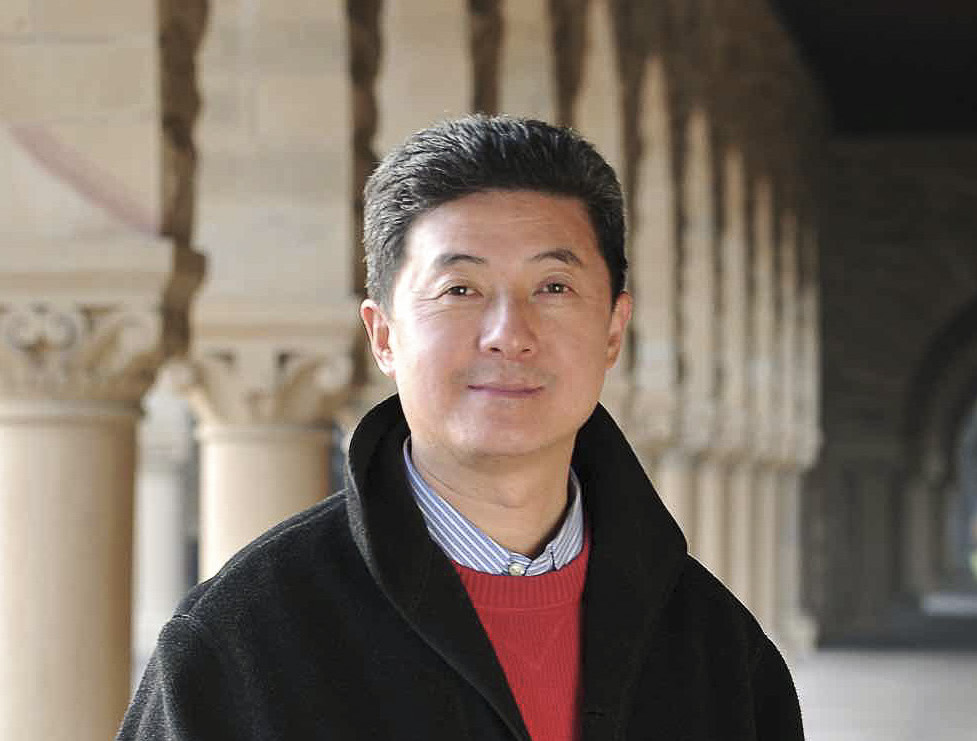Distinguished Stanford physics professor Shoucheng Zhang passed away on Dec. 1, 2018 at age 55. According to his family, Zhang’s death — an apparent suicide — follows a long “battle with depression.” However, some on Chinese media speculate that Zhang’s death may be related to rising U.S.-China tensions and Zhang’s involvement with Chinese business and government.
“We are saddened to learn of the passing of Shoucheng Zhang, a distinguished physicist who has made tremendous scientific contributions,” said University Provost Persis Drell, who is also a physics professor. “His passing is a loss for his family, his colleagues at the University and for his field.”
A pioneer in physics, Zhang explored everything from novel materials and quantum gravity to artificial intelligence. Most notably, his research in a topological insulator — which led to the discovery of a new state of matter — led to predictions that his team would win the 2014 Nobel Prize in physics. Though Zhang didn’t win, his research was seen as critical for the development of improved semiconductor chips, a technology highly valued by the Chinese Communist Party (CCP) for economic and national security purposes.
Zhang was originally recruited in 2008 under the Thousand Talents program — a CCP effort to attract top scientists from overseas to work in China — to conduct research at Tsinghua University in Beijing. Zhang was active in helping U.S.-trained Chinese researchers return home, and expressed his desire to help “bring back the front-lines of research to China” in a recent interview with Chinese news portal Sina.
Zhang’s venture capital firm Digital Horizon Capital (DHVC), formerly known as Danhua Capital, was recently linked to China’s “Made in China 2025” technology dominance program in a Nov. 30 U.S. Trade Representative (USTR) report. According to the report, venture capital firms like DHVC are ultimately aimed at allowing China to access vital technology from U.S. startups. Zhang’s firm lists 113 U.S. companies in its portfolio, most falling within emerging sectors that the Chinese government has identified as strategic priorities.
The “Made in China 2025” program combines economic espionage and aggressive business acquisitions to aid China’s quest to become a tech manufacturing superpower, the USTR report continues. The program was launched in 2015 and has been cited by the Trump administration as evidence that the Chinese government is engaged in a strategic effort to steal American technological expertise.
A Hoover Institution document called “Chinese Influence & American Interests: Promoting Constructive Vigilance,” released just one day before the USTR report, echoes its sentiments. The 192-page investigation argues that China “captures much valuable new technology through its investments in US high-tech companies,” and is more generally attempting to manipulate state and local governments, universities, think tanks, media, corporations and the Chinese American community.
The close timing of Zhang’s death with the USTR report’s release — as well as the same-day arrest of the CFO of Huawei, a Chinese telecommunications company now under fire for sanctions fraud — has fueled doubt within Chinese media that the scientist’s death occurred of his own accord.
According to The Washington Times, Guo Wengui, an exiled Chinese businessman who in the past had close contact with Chinese intelligence, suspected foul play in Zhang’s death because the physicist knew secrets about China’s technology expert program. Zhang also refused to return to China as requested by senior party leaders, said Guo.
“I knew this guy very well,” Guo said. “The guy worked with the [Chinese Communist Party].”
Zhang’s family maintains that the events were unrelated to his death.
“There is no police investigation, and the authorities have no suspicions about Professor Zhang’s death,” a representative for the family told the South China Morning Post. “You will read that he committed suicide, and this is true. But you will also read in the family statement that he had periodic bouts with depression.”
Zhang’s distinguished career includes winning the Dirac Medal of the International Centre for Theoretical Physics in 2012 and a spot on the American Academy of Arts and Sciences in 2015. His recent classes include the popular introductory seminar, “PHYSICS 81N: Science on the Back of the Envelope” and “PHYSICS 171: Thermodynamics, Kinetic Theory, and Statistical Mechanics II.”
He is survived by his wife, Barbara; his children, Stephanie and Brian; and his daugher-in-law, Ruth Fong.
The Daily has reached out to the University for comment.
Contact Berber Jin at fjin16 ‘at’ stanford.edu.
Editor’s note: If you are experiencing trauma or thoughts of self harm, there are available resources both on and beyond campus that are reachable 24 hours a day, seven days a week:
National Suicide Prevention Hotline: +1(800)-273-8255
Stanford Counseling and Psychological Services: +1(650)-723-3785
Stanford Confidential Support Team: +1(650)-725-9955
